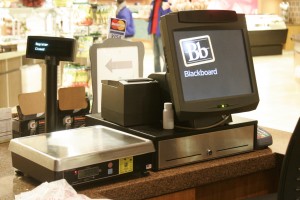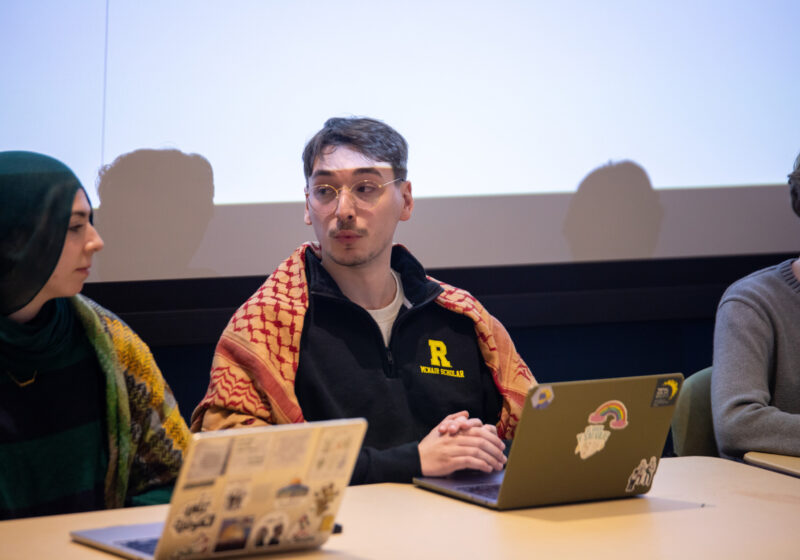
Courtesy of Drue Sokol
While purchasing a meal at most dining locations on campus, the cash registers display a running total of the purchase. When paying with declining, they conveniently flash a summation of the card’s remaining balance after being swiped. However, at a few locations around campus, the displays only face the cashier, hiding the price from customers. The worst of these visibility issues can be found at the Common Market and Southside Market.
While declining may feel like Monopoly money to some students, to others it is a precious resource to be closely guarded. This inability to see price totals makes it difficult for students to plan out their spending over a semester and maintaining a proper budget becomes a matter of guesswork.
Whether or not declining is a concern, some customers — particularly those who live off campus — prefer to pay in cash. Moreover, the selection of inedible paraphernalia, including medicine, plates and event tickets, cannot be purchased with declining at all. In these situations, students are spending real dollars without any indication of the cost.
The Common Market presents the greatest problem: the display is tilted upward at an awkward angle, which ensures it can only be seen by the tallest customers. Only select candy buckets have their prices displayed at the counter, and the majority only have prices hand-written on the buckets with colorful markers, which can be difficult to read from across the counter. These prices are displayed per pound, making it impossible to judge the precise cost without using a scale. The candy bars kept below the counter don’t have any prices displayed at all. It is entirely possible to complete a transaction without ever knowing its true price.
This problem can be easily rectified by ensuring that screens remain facing the customers. At retailers outside of a college campus this situation would never be permitted, so it is equally unacceptable at UR.
It is already easy enough to buy things impulsively with a pre-paid meal plan and a plastic card. Why must the disconnect be increased by preventing students from seeing prices entirely?


